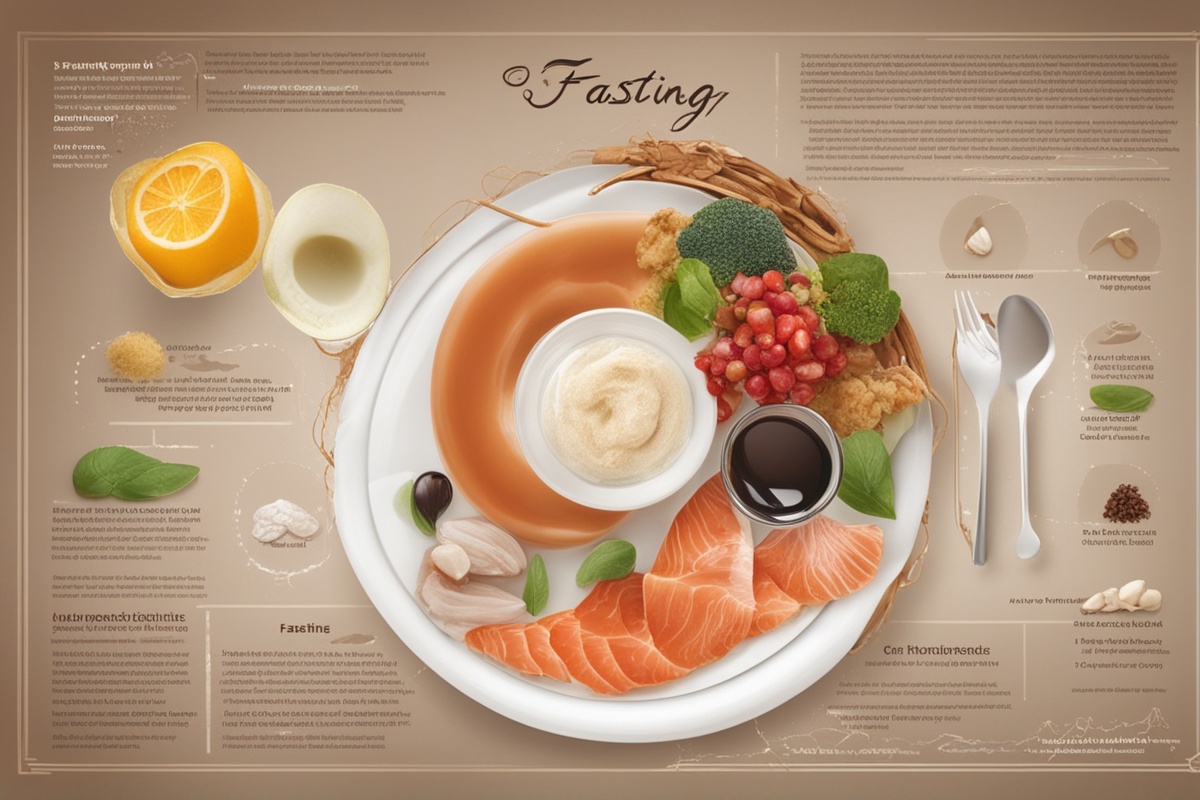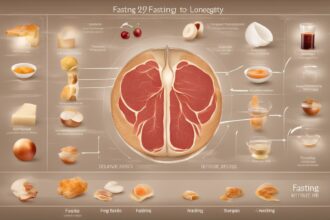Have you ever wondered if the secret to a longer, healthier life could be as simple as changing when and how you eat? Welcome to the fascinating world of fasting longevity—a concept that’s gaining traction among health enthusiasts and scientists alike. fasting, the practice of abstaining from food for specific periods, isn’t just about weight loss or detoxing. It’s a powerful tool that may help slow aging, boost cellular repair, and improve overall wellness. In this post, we’ll dive deep into how fasting can support longevity, explore the science behind it, and share actionable tips to incorporate it into your life. Whether you’re new to fasting or a seasoned pro, there’s something here for everyone looking to live a vibrant, extended life.
What Is Fasting Longevity and Why Does It Matter?
At its core, fasting longevity refers to the potential of fasting to extend lifespan and improve healthspan—the number of years you live in good health. Unlike trendy diets that come and go, fasting is rooted in ancient practices, from religious traditions to survival mechanisms in early humans. Today, modern science is catching up, revealing that fasting triggers biological processes that combat aging. Think of it as a reset button for your body, allowing it to focus on repair rather than digestion. By reducing oxidative stress, inflammation, and metabolic dysfunction, fasting may help prevent age-related diseases like diabetes, heart disease, and even certain cancers. It’s not just about living longer; it’s about thriving as you age.
The Science Behind Fasting and Longevity
Let’s get into the nitty-gritty of how fasting promotes longevity. One of the key mechanisms is autophagy, a cellular cleanup process that kicks into high gear during fasting. When you abstain from food, your cells start breaking down and recycling damaged components, essentially “taking out the trash.” Research, including studies published in journals like Nature, shows that autophagy can protect against neurodegenerative diseases and slow aging at the cellular level. Fasting also lowers insulin levels and boosts ketone production, which shifts your body into a state of metabolic efficiency. This metabolic flexibility is linked to improved brain health and reduced risk of chronic conditions. Moreover, fasting activates pathways like sirtuins—proteins associated with longevity—that help regulate DNA repair and stress resistance. The science is clear: fasting for longevity isn’t just a fad; it’s a promising strategy backed by evidence.
Different Types of Fasting for Longevity
Not all fasting methods are created equal, and finding the right one for your lifestyle is key to reaping the benefits of fasting longevity. Here are a few popular approaches that have shown promise for extending healthspan:
- Intermittent Fasting (IF): This involves cycling between eating and fasting windows, such as the 16:8 method (fast for 16 hours, eat during an 8-hour window). It’s beginner-friendly and supports metabolic health.
- Time-Restricted Eating (TRE): Similar to IF, TRE limits your daily eating to a specific timeframe, often 10–12 hours, aligning with your body’s circadian rhythm for better aging outcomes.
- Extended Fasting: This involves fasting for 24–72 hours or more, often done occasionally. It’s more intense but can amplify autophagy and cellular repair.
- 5:2 Diet: Eat normally for five days of the week and restrict calories to 500–600 on two non-consecutive days. It’s a flexible way to ease into fasting.
Each method has unique benefits, but the underlying principle remains the same: giving your body a break from constant food intake to focus on healing and rejuvenation.
Practical Tips to Start Fasting for Longevity
Ready to harness the power of fasting and longevity? Starting a fasting routine doesn’t have to be daunting. It’s all about gradual progress and listening to your body. Here are some practical tips to help you begin your journey:
- Start Small: If you’re new to fasting, try a 12:12 schedule—fast for 12 hours overnight and eat during a 12-hour window. Gradually increase the fasting period as you feel comfortable.
- Stay Hydrated: Drink plenty of water during fasting periods to support detoxification and prevent dehydration. Herbal teas and black coffee (without sugar) are also great options.
- Focus on Nutrient-Dense Meals: When you break your fast, prioritize whole foods like vegetables, lean proteins, and healthy fats to maximize the anti-aging benefits of fasting.
- Avoid Overeating: It’s tempting to binge after a fast, but overeating can negate the benefits. Eat mindfully and stop when you’re satisfied, not stuffed.
- Consult a Professional: If you have medical conditions or are on medication, speak with a healthcare provider before starting any fasting regimen for longevity.
Consistency is more important than perfection. Even a few days of fasting per week can make a difference in how you age.
Potential Challenges and How to Overcome Them
While the benefits of fasting longevity are impressive, it’s not always a walk in the park. Hunger pangs, irritability, and fatigue can crop up, especially in the beginning. These are often temporary as your body adjusts to a new eating pattern. To manage hunger, distract yourself with light activities like walking or meditation. If you feel sluggish, ensure you’re getting enough electrolytes—add a pinch of salt to your water or sip on bone broth during longer fasts. Another challenge is social eating; skipping meals at gatherings can feel isolating. Plan ahead by scheduling fasting days around quieter times or communicate your goals with friends and family for support. Remember, fasting isn’t about deprivation—it’s about intentional living for a longer, healthier life.
Fasting Longevity: A Lifestyle, Not a Quick Fix
One of the biggest misconceptions about fasting for longevity is that it’s a short-term diet. In reality, it’s a sustainable lifestyle shift that works best when paired with other healthy habits. Regular exercise, quality sleep, and stress management amplify the anti-aging effects of fasting. Studies, such as those from the National Institute on Aging, suggest that combining fasting with a balanced lifestyle can enhance mitochondrial health—your cells’ powerhouses—and slow biological aging. Fasting isn’t a magic bullet, but it’s a powerful piece of the longevity puzzle. Approach it with curiosity and patience, and you’ll likely notice not just physical changes but mental clarity and energy boosts too.
In conclusion, fasting longevity offers a compelling path to aging gracefully, backed by science and centuries of human practice. From triggering autophagy to improving metabolic health, fasting can help you live not just longer, but better. Whether you opt for intermittent fasting, time-restricted eating, or an occasional extended fast, the key is to start small, stay consistent, and listen to your body. Remember, the journey to a healthier, longer life is personal—what works for one person may need tweaking for another. So, why not give fasting a try? Experiment with different methods, track how you feel, and unlock the potential of fasting and longevity for yourself. Here’s to thriving at every age—let’s fast forward to a brighter, healthier future together!






